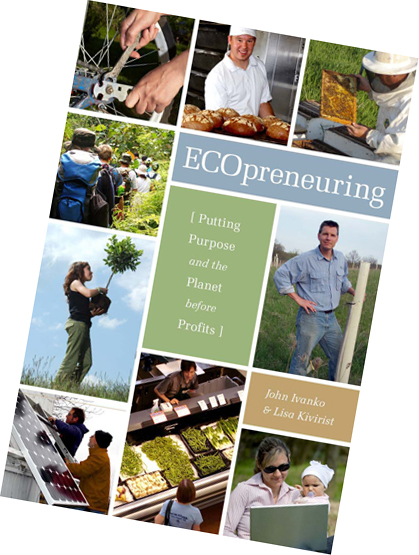by Bill McKibben Bill McKibben is the author of many books, most recently a collection called The Bill McKibben Reader. He is also an organizer of the international global warming campaign 350.org |  |
by Bill McKibben Bill McKibben is the author of many books, most recently a collection called The Bill McKibben Reader. He is also an organizer of the international global warming campaign 350.org |  |
As it turns out, either will do -- that's the good news here. But only if they're linked, linked tightly.
Our ecological problem stems largely, I think, from the way we think about our economic life. The only thing we've asked of the economy is that it get bigger -- that's been our sole criteria for success. And since we're smart people and good at accomplishing what we set out to do, it's gotten bigger. And bigger. And bigger still. By now it's casting a long shadow across the planet, and we've reached the point where sheer expansion seems increasingly unlikely. Consider: if the Chinese come to own cars at the same rate that Americans do, the current 800 million autos on planet earth will be joined by 1.1 billion in China alone. And then there's India, where Tata just started selling a $2,500 coupe. It can't be done -- not enough steel, not enough rubber, not enough gas, and definitely not enough atmosphere to store the effluents.
One of the biggest ironies of our growth model is that we're coming to realize that it has failed to make our society particularly satisfied -- indeed, the number of Americans who say they're very happy with their lives was higher in 1956 than it is today, though the standard of living has trebled over that half century.
And yet we clearly need an economic life. We all like to eat, and we all like many of the other pleasures of our time.
What to do? The answer, I think, is to ask more of our economic life than we do at the moment. We need to demand not just growth (in fact, we're probably already oversized). We need to ask also that the economy provide some chance at durability, and that it provide some shot at real satisfaction.
Government policy will help with these goals (western Europeans use half as much energy per capita, and are more contented with their lives by every measure). But so will individual thinking and action of the kind outlined in this fine book.
We can begin to build strong local economies that support durable communities, the kind of communities equipped to deal with the dangers this century will bring. But the key word is community -- for too long, we've viewed economic life as a battle between individuals for more. Ecopreneuring needs to be a collaboration between people for better. That's where the future lies!
Order your copy of ECOpreneuring today at a 22% discount off list price and get it signed by the authors (a PDF file order form). |
About the Authors | Speaking | Media Room | ECOpreneuring Homepage | W7843 County P Browntown WI 53522 E-mail: info@innserendipity.com www.ecopreneuring.biz |